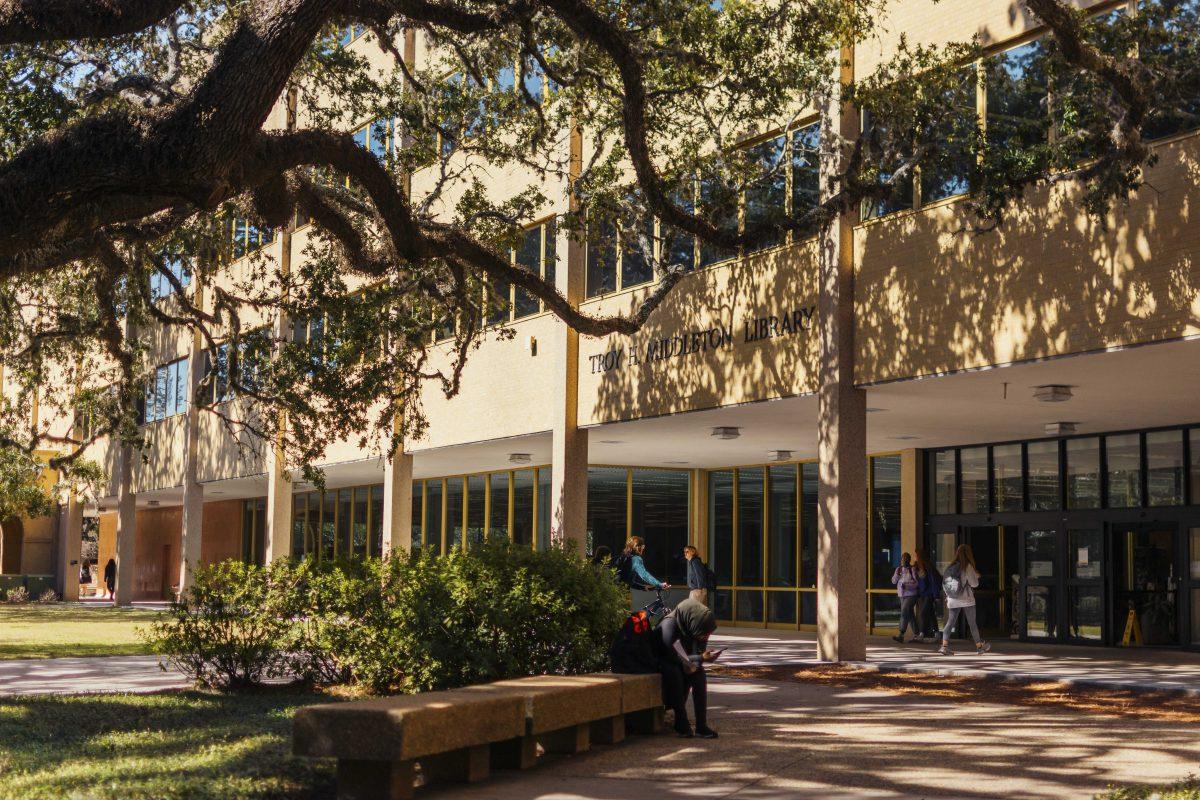LSU Librarians Hayley Johnson and Sarah Simms have been awarded the Digital Projects for the Public Discovery grant from the National Endowment for Humanities for their research on Japanese internment camps in Louisiana during World War II.
Johnson and Simms met seven years ago at Nicholls State University and bonded over their passion for social justice as told through personal stories. The two became fast friends, and have been attached at the hip ever since. There is hardly ever one without the other, including on this project.
After they read an article about children reading to older Japanese victims of incarceration camps during World War II, Johnson vaguely remembered something she had heard about before.
“Somewhere deep in her beautiful brain,” Simms said, “Hayley remembered hearing something about Camp Livingston.”
Johnson and Simms immediately jumped into their research immediately. They found a family in Alexandria that had lived there since the 1920s, including a family member who had been one of the men in the Camp Livingston internment camp during the war. The family agreed to meet with them and told them about their family member’s experience.
There were two different kinds of camps that held the Japanese during World War II. Incarceration camps held Japanese citizens as well as American citizens of Japanese or Asian descent. Camp Livingston was a true internment camp, meaning it held only Japanese citizens, Johnson and Simms said.
“All of this was happening in Louisiana, in the backyard of LSU students, so to speak, and most people are completely unaware that it occurred,” Johnson said.
Camp Livingston also held prisoners of war, which is more commonly known compared to the much darker history of the internment camp.
Johnson and Simms both believe there were significant racist ideologies involved in the internment. There were several laws in the books during that time period that discriminated against immigrants from Japan, China and other Asian countries. These laws stated Japanese citizens could not become American citizens, even if they lived in the United States for several years. As soon as the United States declared war against Japan, Japanese citizens immediately became enemy aliens, according to Simms.
“What they did was identify these men that had been living in Hawaii, California, so many different places in the U.S.,” Simms said, “and they identified them based on race, and that they were leaders in communities.”
The men in the interment camp lived in huts, which didn’t include any heating or cooling devices. There were snakes and other wildlife. They were forced to work. But according to Johnson and Simms’ research, the men inside the camp were resilient. Many had been lawyers, doctors or were in other highly-educated professions. They formed their own university while inside the camp, taught each other what they knew and used art to cope with their experience.
Johnson and Simms have traveled around the country for their research on this internment camp. Relics of this history, including letters and pictures, have been scattered across the country over time.
“We have been doing work for about four years to identify where collections of letters, memoirs and photos of these men and their family currently exist,” Simms said. “A lot of that is on the West Coast and Hawaii, and government documents are at the National Archives in D.C.”
Simms and Johnson are passionate about this project because they believe what happened with the internment camps parallels with what is happening in the United States today. They want people to be aware of this history, and to be aware of their own implicit biases.
“These families were broken apart for years,” Simms said. “You maybe can make that connection with what we’re seeing now with families being separated.”
“We’re just trying to raise awareness that this history isn’t just a history that occurred in other parts of the country,” Johnson said. “It happened here, as well.”
The National Endowment for Humanities, the organization they received the grant from, awards grants according to a series of tiers. The grant Johnson and Simms have just received will allow them to compile their research and create with a plan for what to do with that research to earn another grant.
Johnson and Simms aim to have a freely available website where people can easily access information about Camp Livingston and other WWII internment camps, complete with true, personal retellings of prisoners’ experiences.
Click here to watch a TEDxLSU talk Johnson and Simms gave about their research.
LSU Librarians receive grant for research on WWII Japanese internment camps in Louisiana
February 11, 2020
Middleton Library sits in the Quad on Friday, November 15, 2019.








